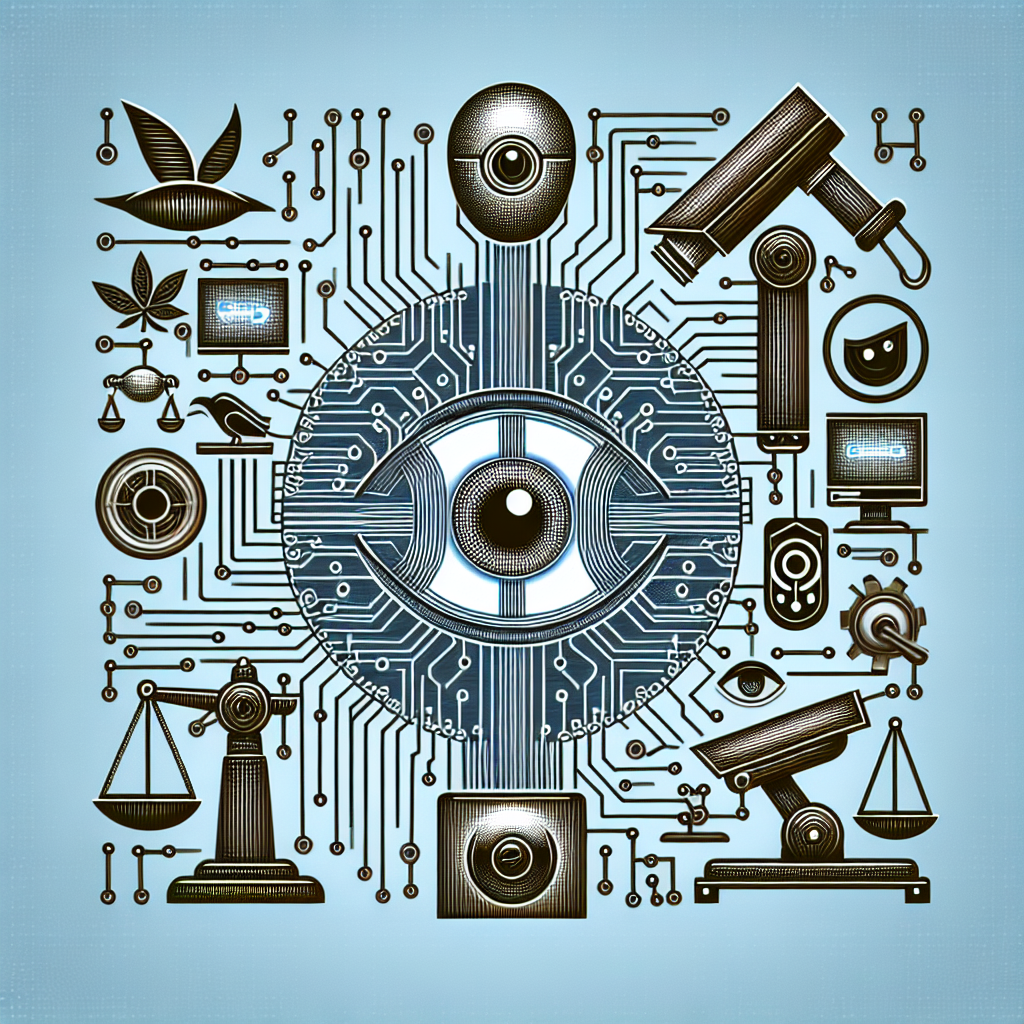The Ethical Implications of AI Development in Surveillance
In recent years, the development and implementation of artificial intelligence (AI) technology in surveillance systems have raised significant ethical concerns. While AI has the potential to improve the efficiency and effectiveness of surveillance, it also presents a number of ethical challenges related to privacy, bias, discrimination, and accountability. In this article, we will explore the ethical implications of AI development in surveillance and discuss how these technologies can be used responsibly to protect individual rights and promote social justice.
Privacy Concerns
One of the primary ethical concerns surrounding AI surveillance technology is the potential invasion of privacy. AI-powered surveillance systems have the capability to collect and analyze vast amounts of data, including sensitive information about individuals’ movements, activities, and personal characteristics. This raises questions about the right to privacy and the extent to which individuals should be monitored and tracked by AI systems.
In many cases, AI surveillance technology is used by governments and law enforcement agencies to monitor public spaces, track individuals’ behavior, and identify potential threats. While these systems can be valuable tools for enhancing public safety and security, they also have the potential to infringe on individuals’ privacy rights. For example, facial recognition technology used in surveillance systems can be used to track individuals’ movements and activities without their consent, raising concerns about the erosion of privacy in public spaces.
To address these privacy concerns, it is important for policymakers and developers to establish clear guidelines and regulations for the use of AI surveillance technology. This includes implementing data protection measures, limiting the collection and storage of sensitive information, and ensuring that individuals are informed about the use of surveillance technology in public spaces. By setting clear boundaries and safeguards, it is possible to balance the need for security with respect for individuals’ privacy rights.
Bias and Discrimination
Another ethical issue related to AI surveillance technology is the potential for bias and discrimination in the collection and analysis of data. AI algorithms are trained on large datasets that may contain biased or incomplete information, leading to the potential for discriminatory outcomes in surveillance systems. For example, facial recognition technology has been shown to exhibit racial and gender bias, resulting in inaccurate and discriminatory identification of individuals from minority groups.
This bias and discrimination can have serious consequences for individuals who are unfairly targeted or profiled by AI surveillance systems. In some cases, biased algorithms can lead to wrongful arrests, discriminatory treatment, and violations of individuals’ rights. To address these concerns, it is essential for developers to carefully monitor and evaluate the performance of AI algorithms in surveillance systems, taking steps to mitigate bias and ensure fairness in decision-making processes.
Accountability and Transparency
A key ethical principle in AI development is the need for accountability and transparency in the use of surveillance technology. As AI systems become more advanced and autonomous, it is essential for developers and policymakers to establish mechanisms for oversight and accountability to ensure that these technologies are used responsibly and ethically. This includes implementing mechanisms for auditing AI algorithms, monitoring their performance, and holding individuals and organizations accountable for any misuse or abuse of surveillance technology.
Transparency is also crucial in ensuring that individuals are informed about the use of AI surveillance technology and have a clear understanding of how their data is being collected and used. This includes providing individuals with information about the purpose of surveillance, the types of data being collected, and the potential risks and benefits of AI technology. By promoting transparency and accountability in the development and implementation of AI surveillance systems, it is possible to build trust and confidence in these technologies while protecting individuals’ rights and privacy.
FAQs
Q: How can AI surveillance technology be used responsibly to protect individual rights?
A: To protect individual rights, AI surveillance technology should be used in a manner that respects privacy, avoids bias and discrimination, and promotes accountability and transparency. This includes implementing data protection measures, monitoring and mitigating bias in AI algorithms, and establishing mechanisms for oversight and accountability in the use of surveillance technology.
Q: What are some examples of ethical concerns related to AI development in surveillance?
A: Some examples of ethical concerns related to AI development in surveillance include invasion of privacy, bias and discrimination, and lack of accountability and transparency. These issues can have serious implications for individuals’ rights and well-being, highlighting the need for ethical guidelines and regulations in the use of AI surveillance technology.
Q: How can policymakers and developers address ethical concerns in AI surveillance technology?
A: Policymakers and developers can address ethical concerns in AI surveillance technology by establishing clear guidelines and regulations for the use of these technologies, implementing data protection measures, monitoring and mitigating bias in AI algorithms, and promoting transparency and accountability in the use of surveillance technology. By taking these steps, it is possible to ensure that AI surveillance technology is used responsibly and ethically to protect individual rights and promote social justice.
In conclusion, the development of AI technology in surveillance systems presents a range of ethical challenges related to privacy, bias, discrimination, and accountability. To address these concerns, it is essential for policymakers and developers to establish clear guidelines and regulations for the use of AI surveillance technology, implement data protection measures, monitor and mitigate bias in AI algorithms, and promote transparency and accountability in the use of these technologies. By taking these steps, it is possible to ensure that AI surveillance technology is used responsibly and ethically to protect individual rights and promote social justice.

